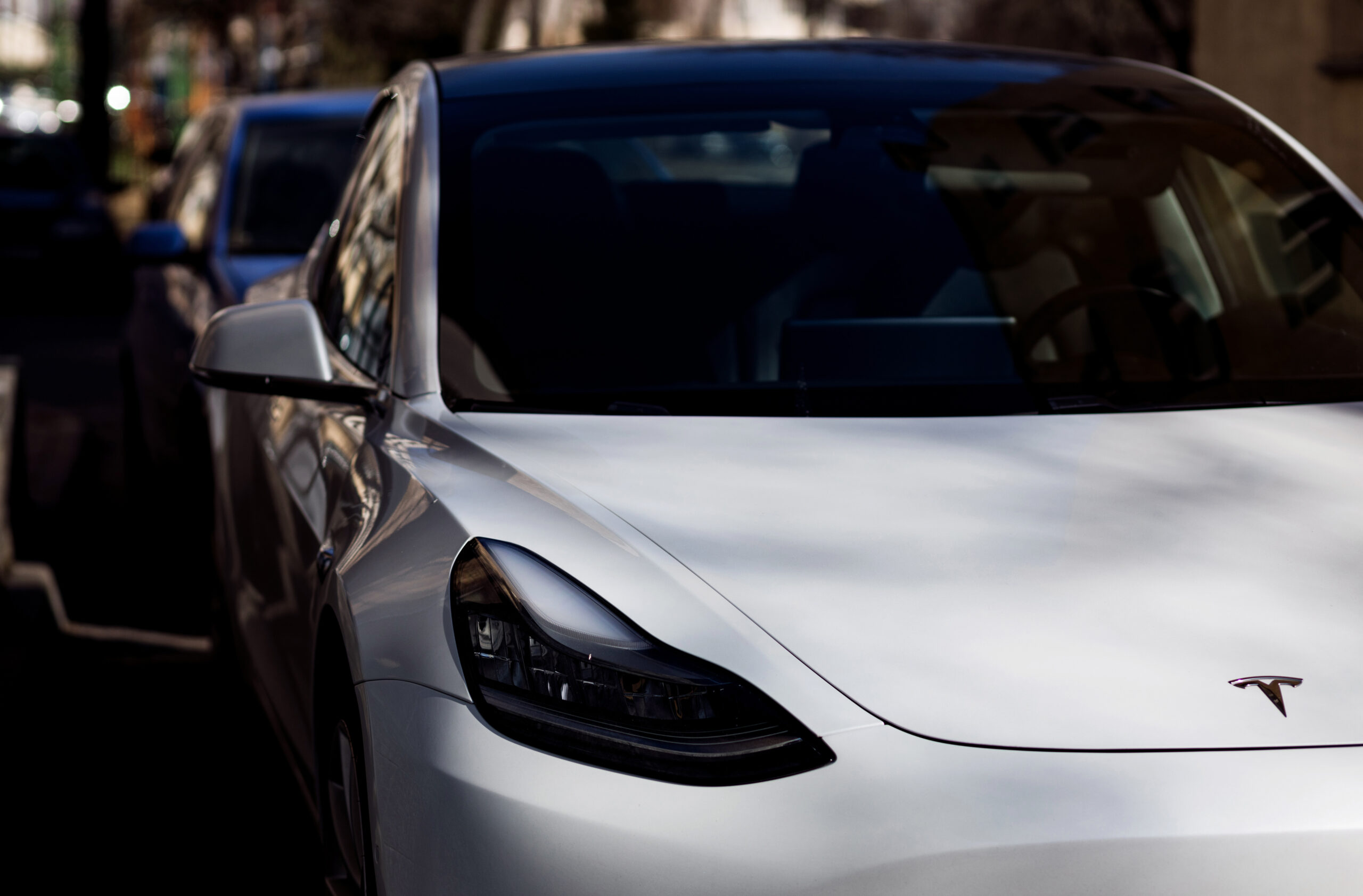ELECTRIC CARS: YES OR NO
Welcome back to the Earthfest blog! Today, we have the privilege of featuring our first guest blog, written by Erin Baker, editorial director at AutoTrader.
Erin will be joining us at Earthfest to lead a much-anticipated talk on April 21st on the Earthfest stage, proudly supported by AutoTrader.
In this blog, Erin embarks on a myth-busting journey about electric vehicles, addressing common misconceptions and shedding light on the facts that often go overlooked. From concerns about battery life to the environmental impact of EV production, Erin tackles the big questions head-on, providing insights that are both informative and thought-provoking. For those still on the fence about making the switch to electric, Earthfest offers a unique opportunity: come and experience the future of transportation for yourself at our test track, where you can take an electric car or even an electric bike for a spin. Whether you’re a seasoned EV enthusiast or simply EV-curious, Earthfest is the place to explore, learn, and perhaps even change your perspective on what it means to ride electric.
Don’t miss Erin Baker’s enlightening talk on April 21st, and join us at the Earthfest test track for an experience that could redefine the way you think about mobility.
Electric cars: yes or no?
Should you make the switch now or ignore them in the hope they’re a passing phase? How do you charge them and will it get easier? What do they cost and will they get cheaper? Do the batteries last? Are they really that green? As Johnny Nash pointed out, there are more questions than answers. Or so it feels.
But actually, we can cut through the rough stuff quite quickly, sort the wheat from the chaff, bust those myths and see the wood for the trees with a few hard facts.
So here we go…sit in and belt up: let’s take a range-conserving drive down Electric Avenue. All aboard!
We’ll plunge straight in at the deep end, seeing as it’s Earthfest, with a look at just how green electric cars actually are, because critics love to sneer about coal-fired power stations providing the electricity to power them, and countries mining for lithium for batteries, and the industry scrapping the cars when they’re in a crash. And it seems to me, the green credentials of electric cars form the easiest argument in their favour.
That’s for one very simple reason: by any conceivable metric, right now, they are a better alternative for the planet than cars with internal combustion engines running on petrol or diesel. Your “normal” car burns hydrocarbons when it moves. It burns petrol or diesel, emits carbon dioxide and nitrogen oxide and other toxic particulates into the air, and that’s it, job done, every day, until the car is scrapped. There is no light at the end of the tunnel here: it’s just a tunnel towards extinction, because these cars just burn stuff, and when they’ve burnt it, they burn more of it, until there’s no more left and we’ve all choked to death. Lovely.
Electric cars, on the other hand, do not simply use stuff, burn it, then use more of it. They move courtesy of motors which get their energy from batteries, which get their energy from electricity, which, increasingly, gets its energy from the wind and the sun. The UK’s use of renewables to power the grid increases every year: it is a good-news trend.
So too is the use of raw materials, in particular rare earth metals, which are used in batteries but also the magnets than spin the motors (the same sorts of magnets spin wind turbines too). Everyone is looking for sources of these minerals and metals away from the vast mining and processing factory that is China. And so hats off to companies like Cornish Lithium, busy trying to extract the material here in the UK. Countries are trying to bolster their own reserves and supplies, not only as a geo-political move, but also because less import-export movement equals a less energy-intensive supply chain. Everyone is trying to reduce upstream and downstream emissions, get a handle on the chain and decarbonise it. So, another goodness trend, with room for upwards growth.
Then there’s the circular economy business, invested in by every car brand on the planet this year. How do we get to a point where we are re-using old electric cars, repairing them after prangs, remanufacturing them if they need rebuilding after a crash and recycling them if we can do no more? Everyone is on this path, both with the bodies of the cars and with the batteries themselves. So, yet another journey with room for growth, heading onwards and upwards. Batteries are getting more efficient, more repairable, more recyclable and more responsible in the sourcing of their raw materials with every year that passes.
And meanwhile engines are just…. engines.
So…
What’s next? Price? Yes, the news is good here too. Brand new electric cars are still far too expensive, for sure, but it is almost irrelevant because 90 per cent of us buy used, and here, electric-car prices fell for 13 consecutive months until the end of 2023. We’re nearing price parity between three-year old electric and petrol cars. Combine that with the lower running costs for electric cars (cheaper by far to “fuel”, low road tax, very low tax on company cars, no congestion charge, fewer parts to get serviced or go wrong) and you start to walk on the sunny side of the street (although we’re still cruising down Electric Avenue – don’t get distracted).
Then there’s charging. Hmm, more tricky because the public-charging network isn’t where it needs to be, either in terms of having enough rapid chargers, having confidence that they will all be working and free, the lack of signage or information on cost, and so on. And the very worst bit, which we at Auto Trader Towers hope the next Government will sort pronto, is that VAT is charged at 20pc on the electricity at public charging points, compared with just five per cent at home. We need VAT equalisation at 5 per cent across the board, to bring down the cost of public charging, or it’s just not fair.
What else did you ask me? Oh yes, do the batteries last and are they reliable? Happy to bust this baby, because this is the biggest myth out there right now. Yes, car batteries last. The latest data from car brands with electric cars that have been on sale for a decade or more (think Nissan Leaf, Renault Zoe, Tesla Model S, BMW i3) is that the batteries lose 1-2 per cent of their performance a year. That means if you buy a 10-year-old electric car, it’s likely to have 80-90 per cent of its performance left. That’s great – you really will hardly notice: plus, an engine loses horsepower over time. Nothing remains unravished by Time’s gnarly fingers.
Also: reliability. Yes, no worries there dude. Batteries come with an eight-year warranty. When was the last time you saw a car with an eight-year warranty on its petrol engine? Spoiler alert: YOU DIDN’T, BECAUSE IT DOESN’T EXIST.
Jeez, it’s like we won’t switch to an electric car until it’s perfect. Where does that mentality come from? It won’t get perfect if we don’t switch, because the car brands will have no money to invest in development, because we’re all sitting at home, ostrich-like, with our heads in the sand.
Don’t be an ostrich. Be an electric-car driver. You can go faster and further. They do lay big eggs, though.
Electric Cars: yes or no?
Today, we have the privilege of featuring our first guest blog, written by Erin Baker, editorial director at AutoTrader. Erin will be joining us at Earthfest to lead a much-anticipated talk on April 21st on the Earthfest stage, proudly supported by AutoTrader.
What is Sustainability?
Sustainability is at the heart of Earthfest 2024. In the heart of King's Cross, London, Earthfest 2024 emerges not just as an event, but as a beacon of hope and action for a sustainable future. As we navigate through the challenges of our time, the concept of sustainability becomes our
O Christmas Tree! An Eco-Friendly Debate: Real vs. Fake
'Tis the season to be jolly, and what better way to spread holiday cheer than with a beautifully adorned eco-friendly Christmas tree? But before you rush out to pick the perfect pine, let's take a moment to consider the environmental aspects of the classic debate: real vs. fake. It's a





